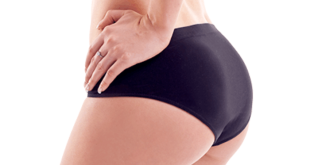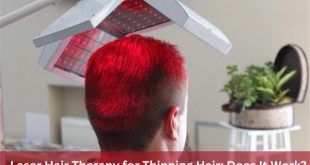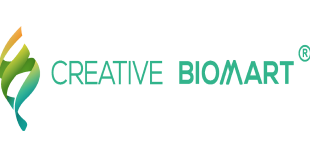Introduction:
Acne is a common skin condition that affects millions of people worldwide, often causing physical discomfort, emotional distress, and a significant impact on self-esteem. While numerous treatments exist, Isotretinoin 40 Mg has gained attention as a highly effective but controversial option for severe or persistent acne. This article explores the use of Accutane as an acne treatment, its benefits, potential side effects, considerations for use, and alternative treatments to help individuals make informed decisions about their skincare.
Understanding Acne: Before delving into Accutane’s role as an acne treatment, it’s crucial to understand the nature of acne itself. Acne is a multifactorial skin condition characterized by the presence of pimples, blackheads, whiteheads, cysts, and nodules. It commonly occurs during adolescence due to hormonal changes but can persist into adulthood and affect individuals of all ages.
The primary factors contributing to acne development include:
Excess Sebum Production:
Sebum is an oily substance produced by the sebaceous glands in the skin. Excessive sebum production can lead to clogged pores and acne formation.
Clogged Pores:
When dead skin cells and sebum accumulate within hair follicles, they can form comedones (blackheads and whiteheads), contributing to acne.
Bacterial Overgrowth:
Propionibacterium acnes (P. acnes) is a bacterium that resides on the skin. Excessive growth of P. acnes within clogged pores can trigger inflammation and acne lesions.
Inflammation:
Inflammatory responses within the skin play a significant role in acne development, leading to redness, swelling, and pain associated with acne lesions.
Acne Severity and Treatment Approaches: Acne severity can vary widely, ranging from mild comedonal acne to severe nodulocystic acne. Treatment approaches are tailored based on the severity of acne, underlying factors contributing to its development, and individual patient characteristics. Common acne treatments include topical medications (e.g., benzoyl peroxide, retinoids), oral antibiotics, hormonal therapies (e.g., oral contraceptives), and in severe cases, systemic medications like isotretinoin (Accutane).
Accutane (Isotretinoin) as an Acne Treatment: Accutane, the brand name for isotretinoin, is an oral medication that belongs to the retinoid class of drugs. It is primarily used to treat severe nodular acne that has not responded adequately to other treatments. Accutane works by targeting multiple factors contributing to acne development, including reducing sebum production, preventing clogged pores, suppressing bacterial growth, and decreasing inflammation.
Benefits of Accutane Treatment: Accutane is renowned for its efficacy in treating severe acne and producing long-lasting results. Some of the key benefits associated with Accutane treatment include:
Significant Reduction in Acne Lesions:
Accutane is highly effective at reducing the number and severity of acne lesions, including cysts and nodules, which are often resistant to other treatments.
Prevention of Scarring:
By targeting deep-seated acne lesions and reducing inflammation, Accutane helps prevent the formation of permanent acne scars.
Long-term Remission:
Many individuals experience long-term remission or even permanent clearance of acne after completing a course of Accutane treatment.
Improved Quality of Life:
Clearing severe acne can lead to improved self-esteem, reduced psychological distress, and enhanced quality of life for individuals affected by acne.
Considerations Before Using Accutane: While Accutane offers significant benefits, it is essential to consider various factors before starting treatment. Some key considerations include:
Severe Side Effects:
Accutane 40 Mg can cause a range of side effects, some of which can be severe. These may include dry skin, chapped lips, dry eyes, joint pain, elevated liver enzymes, mood changes, and, rarely, serious conditions like birth defects if taken during pregnancy.
Monitoring Requirements:
Patients undergoing Accutane treatment require regular monitoring, including blood tests to assess liver function, lipid levels, and pregnancy tests for females due to the teratogenic (birth defect-causing) potential of Accutane.
Strict Pregnancy Prevention Measures:
Due to the risk of severe birth defects, women of childbearing age must use highly effective contraception methods and adhere to strict pregnancy prevention protocols before, during, and after Accutane treatment.
Drug Interactions:
Accutane may interact with certain medications, including oral contraceptives, causing potential efficacy reductions or adverse effects. It is crucial to discuss all medications and supplements with a healthcare provider before starting Accutane.
Alternative Acne Treatments: For individuals who may not be suitable candidates for Accutane or prefer alternative treatment options, several alternatives exist. These include:
Topical Treatments:
Topical medications such as benzoyl peroxide, retinoids, salicylic acid, and azelaic acid can be effective for mild to moderate acne by targeting surface bacteria, unclogging pores, and reducing inflammation.
Oral Antibiotics:
Oral antibiotics like doxycycline, minocycline, and erythromycin are often prescribed for inflammatory acne to reduce bacteria and inflammation. However, long-term use can lead to antibiotic resistance and other side effects.
Hormonal Therapies:
Hormonal therapies, including oral contraceptives (for females) and anti-androgen medications, can help regulate hormone levels and reduce sebum production, especially in cases of hormonal acne or acne related to polycystic ovary syndrome (PCOS).
Procedural Treatments:
Dermatological procedures such as chemical peels, microdermabrasion, laser therapy, and photodynamic therapy (PDT) can complement topical and oral treatments, targeting acne lesions and improving skin texture.
Individualized Treatment Plans: The best acne treatment for each individual depends on various factors, including the type and severity of acne, underlying causes, medical history, lifestyle factors, and personal preferences. A comprehensive evaluation by a dermatologist or healthcare provider is essential to develop an individualized treatment plan tailored to each patient’s needs.
Factors to Consider When Choosing Acne Treatment: When considering Accutane or any acne treatment, several factors should be taken into account:
Acne Severity:
The severity of acne, including the presence of cysts, nodules, scarring, and inflammation, influences treatment decisions. Accutane is typically reserved for severe nodular acne that has not responded to other treatments.
Medical History:
Patients with certain medical conditions, such as liver disease, lipid disorders, depression, or pregnancy, may not be suitable candidates for Accutane. A thorough medical history assessment is crucial before starting treatment.
Pregnancy Risk:
Accutane is contraindicated during pregnancy due to its teratogenic effects. Women of childbearing age must use highly effective contraception methods and adhere to strict pregnancy prevention protocols during Accutane treatment.
Side Effect Profile:
The potential side effects and risks associated with Accutane should be carefully considered and discussed with a healthcare provider. Alternative treatments with lower side effect profiles may be suitable for some individuals.
Treatment Goals:
Clear communication of treatment goals and expectations is essential when choosing acne treatment. Factors such as desired outcomes, timeframes, lifestyle considerations, and patient preferences play a role in decision-making.
Conclusion:
Accutane can be an effective treatment option for severe or persistent acne, offering significant benefits such as reduced acne lesions, prevention of scarring, long-term remission, and improved quality of life. However, its use requires careful consideration of potential side effects, monitoring requirements, strict pregnancy prevention measures, and individual suitability. Alternative acne treatments, including topical medications, oral antibiotics, hormonal therapies, and procedural treatments, offer viable options for individuals who may not be candidates for Accutane or prefer alternative approaches. A personalized approach to acne treatment, guided by a healthcare provider, ensures optimal outcomes and patient satisfaction.







